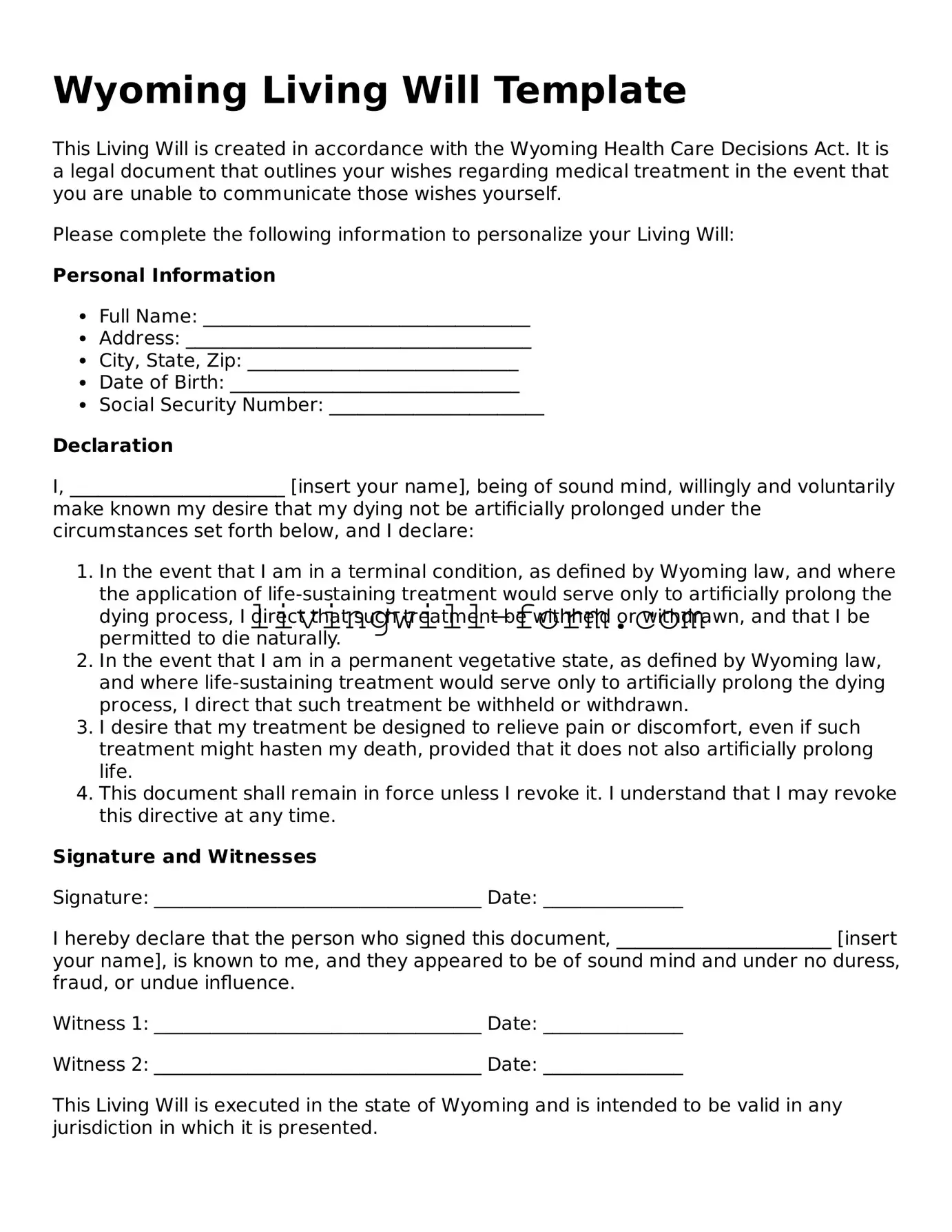What is a Wyoming Living Will?
A Living Will in Wyoming is a legal document that outlines a person's wishes regarding medical treatment in circumstances where they are no longer able to communicate their decisions due to incapacity. It allows individuals to make clear statements about the extent of medical intervention and care they wish to receive if they cannot make those decisions themselves, particularly at the end of their life.
Who can create a Living Will in Wyoming?
Any individual who is 18 years of age or older and of sound mind can create a Living Will in Wyoming. This means the person must fully understand the nature and consequences of their decisions at the time the document is signed.
How do I make a Wyoming Living Will?
To make a Living Will in Wyoming, you need to complete a specific form that includes your healthcare preferences in various situations. This document must be signed in the presence of two witnesses, who also must sign, affirming that you are acting voluntarily and are of sound mind. Alternatively, it can also be notarized by a notary public. It is advisable to consult with a healthcare provider and a legal expert to ensure your Living Will accurately reflects your wishes and complies with Wyoming law.
Do I need a lawyer to create a Living Will in Wyoming?
No, you do not legally need a lawyer to create a Living Will in Wyoming. However, consulting with a lawyer who specializes in estate planning or healthcare law can help ensure that your document is clear, legally sound, and accurately reflects your wishes. A lawyer can also advise you on any new changes in the law that might affect your Living Will.
What should be included in a Wyoming Living Will?
A Wyoming Living Will should include specific instructions about the medical treatment you wish to receive or refuse if you are unable to make decisions for yourself. This can include your preferences regarding the use of life-sustaining measures, such as mechanical ventilation, tube feeding, or CPR, and treatments for pain relief. It can also specify your wishes about organ donation and the designation of a healthcare proxy or agent to make decisions on your behalf.
How can I change or revoke my Wyoming Living Will?
You can change or revoke your Wyoming Living Will at any time as long as you are of sound mind. To revoke, you can destroy the document, prepare a new Living Will, or make a written, dated statement expressing your intention to revoke it. If you create a new Living Will, it automatically revokes the old one. Sharing your decision with your healthcare proxy, family, and healthcare providers ensures that they are aware of the change.
Is a Living Will from another state valid in Wyoming?
Wyoming law recognizes Living Wills created in other states as long as they comply with Wyoming’s legal requirements or the laws of the state where it was made. However, it's wise to create a new Living Will that specifically meets Wyoming’s standards to avoid any potential confusion or legal issues, especially if you are a permanent resident of Wyoming or spend a significant amount of time there.

